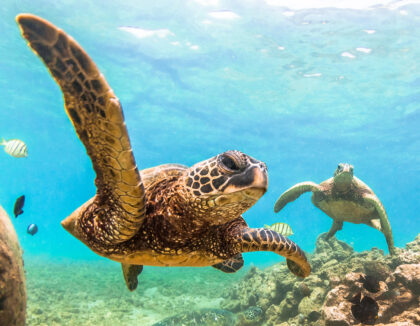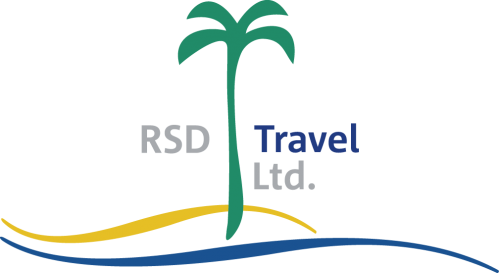National Information on Scandinavia
Comparison of temperatures
| Jan | Feb | Mar | Apr | May | Jun | Jul | Aug | Sep | Oct | Nov | Dec |
| Scandinavia | -2 | -1 | 6 | 13 | 17 | 20 | 23 | 22 | 17 | 14 | 14 | 7 |
| London | 6 | 8 | 9 | 11 | 15 | 20 | 21 | 20 | 19 | 15 | 10 | 7 |
General note:
Below is an information overview. The conditions of entry, as well as the political and health situation, can change anywhere in the world at any time. We therefore recommend checking before your trip. Please check the website of the Foreign Office (www.gov.uk/) before your departure.
Form of government:
Sweden I Norway I Denmark: Parliamentary monarchy
Capital:
Sweden: Stockholm
Norway: Oslo
Denmark: Copenhagen
Religion:
Sweden I Norway I Denmark: Predominantly Protestant-Lutheran, also Muslims, Catholics and smaller religions
Language:
Sweden: Swedish; recognised minority languages: Sami, Finnish, Meänkieli (Finnish in Tornedalen), Yiddish, Romani Chib (a Roma language).
Norway: Norwegian; in the north of Norway, Sami (also an officially recognised language) is also spoken.
Denmark: Danish; English is widely spoken
Climate:
Due to the size of Scandinavia, there are different climate zones. The northern regions of Sweden and Norway lie in the Arctic polar zone. The climate in the south is temperate, with moderately warm summers and relatively mild winters. Denmark also has a temperate climate with pleasant temperatures in summer and cool winters.
Local time:
The time difference to the time zone in the UK is -1 hour throughout the year.
Electricity:
The supply voltage is 230 V, 50 HZ. An adapter is usually not required (except for isolated K-sockets in Denmark).
Making Phone calls:
For telephone calls to the UK, please dial the country code 0044 first. For calls to the destination country, please dial the country prefix of the country first: Sweden: 0046 | Norway: 0047 | Denmark: 0045. Omit the first zero in the area code.
Entry requirements for British citizens:
If you are planning to travel to an EU country, or Norway, you must follow the Schengen area passport requirements.
Your passport must be:
– issued less than 10 years before the date you enter the country (check the ‘date of issue’)
– valid for at least 3 months after the day you plan to leave (check the ‘expiry date’)
You can travel to countries in the Schengen area for up to 90 days in any 180-day period without a visa. Check your passport is stamped if you enter or exit the Schengen area through Sweden/Denmark as a visitor. Border guards will use passport stamps to check you are complying with the 90-day visa-free limit for short stays in the Schengen area. If relevant entry or exit stamps are not in your passport, border guards will presume that you have overstayed your visa-free limit.
However, passport and visa requirements change from time to time and are also dependent on the purpose of your visit and your nationality. Whilst we endeavour to provide guidance where necessary, we can not be responsible for any problems encountered (whether at any point of entry or elsewhere) in the event that passport and visa requirements are not satisfied. For up-to-date information on entry requirements, please visit www.gov.uk/foreign-travel-advice/.
Tour guide:
Your expert tour guides will be able to provide you with detailed information about the country, people, history, culture, etc., and offer advice and assistance for organising your trip. They can also help with room allocation and look forward to welcoming you with initial information. Here you will find out all you need to know and useful information about the trip. We have put together a varied programme including numerous highlights, enabling you to experience the culture and diversity of landscape that Sweden, Norway and Denmark has to offer, and learn all about the countries and its people.
Additional package:
Although your trip already includes a comprehensive package, you also have the option of choosing added extras on arrival.
Explorer package: The package includes admission to Drottningholm Castle (World Heritage), the trip to Roskilde with guided tour of the cathedral (World Heritage) and the full-day excursion “Karlskrona (World Heritage), Marine Museum, Elk Park & Archipelago”: only £169* per person.
Half board: The package includes 7× dinner as buffet or at least 2 course menu: only £269* per person.
* Package prices may vary when booking on site.
Currency / Banks / Credit cards:
Sweden: The currency is the Swedish Krona (SEK). 1 krona = 100 öre. Exchange rate (May 2023): 1 GBP = 12.79 SEK; 1 SEK = 0.078 GBP. In Sweden, even small amounts are paid by debit or credit card. Many shops, cafés and restaurants now no longer accept cash at all. Most banks in Sweden no longer handle cash. We recommend taking an internationally accepted credit or debit card with you. Travellers‘ cheques are no longer accepted in Sweden.
Norway: The unit of currency is the Norwegian krona (NOK). 1 krona = 100 öre. Exchange rate (May 2023): 1 GBP = 13.19 NOK; 1 NOK = 0.076 GBP. Withdrawing cash from ATMs and paying with credit cards is possible almost everywhere. Cashless payment has become the norm in Norway. Travellers‘ cheques are no longer accepted in Norway.
Denmark: The unit of currency is the Danish krona (DKK). 1 krona = 100 öre. Exchange rate (May 2023): 1 GBP = 8.42 DKK; 1 DKK = 0.11 GBP. Even small amounts are paid by debit or credit card. Cash payment is regularly not accepted at parking machines and on public transport. We recommend taking an internationally accepted credit or debit card with you. Withdrawing cash from ATMs and paying with debit and credit cards is possible everywhere. Travellers‘ cheques are almost no longer accepted.
Customs regulations:
Sweden: The import and export of goods is subject to the regulations of the European Union. The principle of no checks on goods does not exclude spot checks as part of police surveillance of borders and police control of cross-border traffic. Persons younger than 20 years of age are generally not allowed to import alcohol, persons younger than 18 years of age are generally not allowed to import tobacco into Sweden. For their own use, persons who are 20 or 18 years of age and older may bring alcohol and tobacco into Sweden. Food can also be brought in for personal use. The quantity limit for fish is limited to a maximum of 15 kilos.
Norway: Norwegian customs regulations are very strict. The import of alcohol, but also tobacco, is subject to strict conditions. Even small violations of the limits are severely punishable. High import duties are payable when importing cars. There are no restrictions on the import and export of national and foreign currency, but registration is required for amounts over NOK 25,000. The export of self-caught fish is now only permitted if it has been caught under the guidance of a registered fishing enterprise. The new export quota is a maximum of 18 kg twice a year.
Denmark: The import and export of goods is subject to the regulations of the European Union. The principle of no checks on goods does not exclude spot checks as part of police surveillance of borders and police control of cross-border traffic. Weapons may not be imported without prior permission from the Danish Police or the Danish Ministry of Justice.
Further customs information regarding the import of goods can be obtained from the embassy of your destination country. This is the only place from which to obtain legally correct and binding information.
Important: If you’re travelling to Great Britain from outside the UK, your personal allowances mean you can bring in a certain amount of goods without paying tax or duty. If you go over your allowances you must declare all your goods and pay tax and duty on all the goods in that category. Please inform yourself about the current customs regulations: www.gov.uk/bringing-goods-into-uk-personal-use/arriving-in-Great-Britain.
Safety instructions:
Crime: Petty crime such as pickpocketing is particularly common in city centres, tourist centres and transfer and transit places such as ferries and airports. Keep money, IDs, driving licences and other important documents safe and separate and preferably store copies electronically. Prefer cashless payment and take only the cash you need for the day and no unnecessary valuables.
Special criminal provisions:
Sweden: Violation of the ban on photographing and entering designated military protected objects is punishable by substantial fines and/or imprisonment. Under the Swedish Weapons Act, the carrying, commerce and import of tear gas sprays is prohibited. The consumption of alcohol is prohibited in many public places. Possession of drugs – even in small quantities for personal consumption – is prohibited in Sweden, as is consumption itself (prison sentence of up to three years, serious cases can also attract significantly longer sentences). Carrying knives is prohibited in public places.
Norway: Alcohol consumption is prohibited in public places and parks. The carrying of even the smallest quantities of narcotics will generally lead to arrest at the border, the imposing of a ban on entry or imprisonment.
Denmark: Since 2018, Denmark has had a ban on covering up in public spaces. If an item of clothing that covers the face is worn in a public place, a fine may be imposed. The prohibition does not apply to a covering of the face that serves a legitimate purpose. The regulation is particularly directed against Muslim women‘s clothing, such as the burqa or niqab. The carrying of daggers or knives in public is prohibited. It is also prohibited to carry, trade and import tear gas spray.
Medical information:
At least 8 weeks before your trip, check the latest country-specific health advice from the National Travel Health Network and Centre (NaTHNaC) on the TravelHealthPro website (https://travelhealthpro. org.uk/countries). Each countryspecific page has information on vaccine recommendations, any current health risks or outbreaks, and factsheets with information on staying healthy abroad.
Medical care:
Sweden | Denmark: In general, the level of care in Sweden and Denmark is good to very good. You should get a free UK Global Health Insurance Card (GHIC) or European Health Insurance Card (EHIC) before leaving the UK. If you already have an EHIC it will still be valid as long as it remains in date. The GHIC or EHIC entitles you to state provided medical treatment that may become necessary during your trip. Any treatment provided is on the same terms as Swedish/Danish nationals.
Norway: For emergency dental services (tannlegevakt), payment usually has to be made on the spot in cash or usually by credit card. If you are a UK national ordinarily resident in the UK, you can use your UK passport to access state provided medical treatment, if it becomes necessary during your trip. Any treatment provided is on the same terms as Norwegian nationals. Most people cannot use a UK-issued European Health Insurance Card (EHIC) or a Global Health Insurance Card (GHIC) to get medical treatment in Norway.
It is important to take out appropriate travel insurance for your needs. A GHIC or EHIC is not an alternative to travel insurance and you should have both before you travel. It does not cover all health-related costs, for example, medical repatriation, ongoing medical treatment and non-urgent treatment. It is recommended that you take out international health insurance with the option of repatriation to the UK.
Customers must ensure that they are in good physical and mental health in line with the trip in question. Customers must enquire about the physical mobility and psychological autonomy required for this trip.
All information is subject to change / Last updated: May 2023
back Information & tips
 Travel highlights
Travel highlights
 Europe
Europe
 Asia
Asia
 America
America
 Africa
Africa
